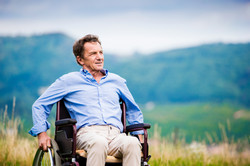Understanding sexual assistance for the disabled
In recent years, the sexuality of PWDs has been officially included in the human rights agenda. However, research has only partially addressed the issue – mainly within the confines of a medical frame, which does not consider relations, identity, desires or pleasure. The EU-funded project SEXUAL ASSISTANCE (Commercial sex, 'sexual assistance' and people with disabilities: A qualitative inquiry on Sweden, Britain, and Switzerland) explored these perspectives and experiences. A comparative and diachronic method was used and included PWDs and users, non-users and potential users of sex-related services. Their caregivers, sexual assistants, and activists such as sexologists, therapists and policymakers also participated in the study. National public debates were analysed in order to understand the positions that currently exist regarding sexual assistance. The research also examined how the decision to engage in sexual assistance is reached, how the encounters are organised and the reflections people have on their experiences. Extensive and repeated conversations were held with 15 men and women sexual assistants operating in France, Italy and Switzerland. They included PWDs using their services and the sexologists and therapists training the sexual assistants. Publications and articles on the preliminary and final results of the project have been prepared and presentations have been given at international conferences across Europe. The work has helped strengthen international collaborations and create future projects in the area of sexual assistance.




